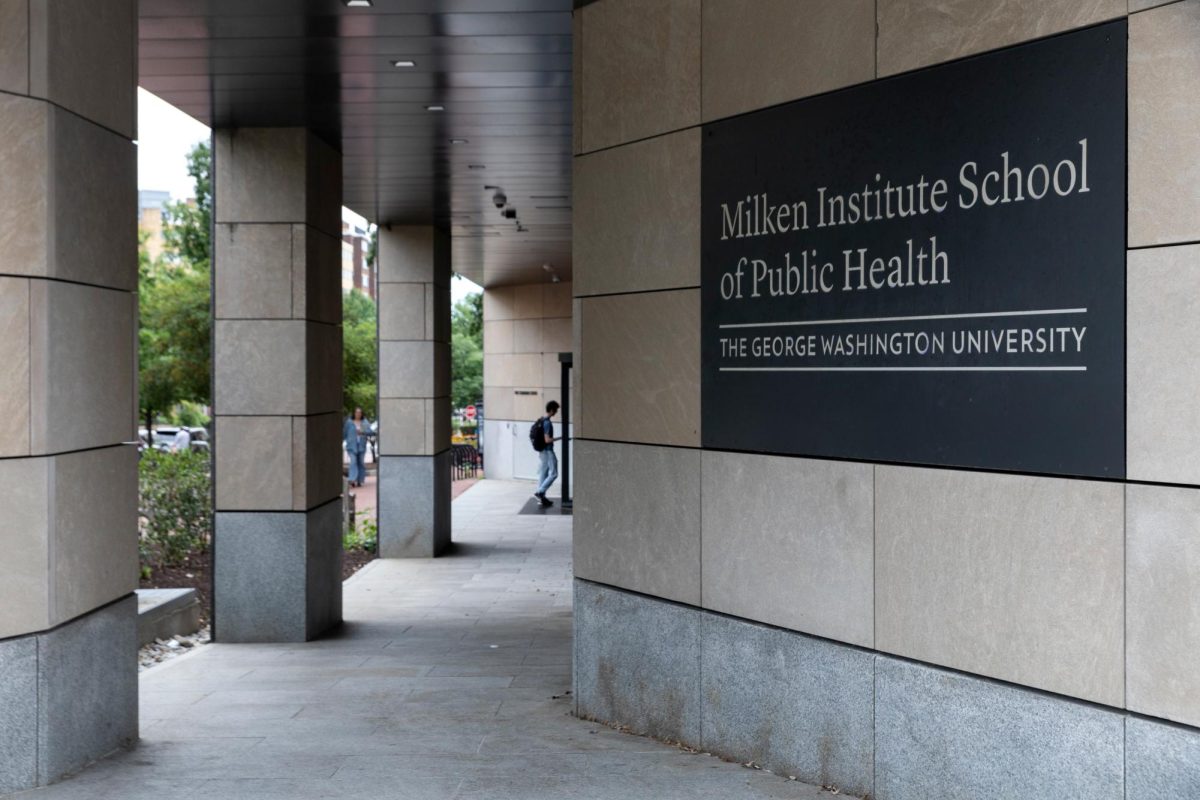The University Honors Program will adopt a dual-campus model next fall with the majority of freshman honors courses and optional freshman housing moving to the Mount Vernon Campus.
While upper-level honors classes will remain on Foggy Bottom, the program’s main office will relocate to newly renovated Ames Hall. The University will also create a faculty learning center linked to the honors program, where professors can spend a year conducting research and teaching honors courses on the Vern.
“We have the potential of transforming honors into what I believe will be a national model,” Provost Steven Lerman said in a letter to honors students and faculty last week.
The University will also fund three faculty fellows who will spend the next year in the learning center, which Lerman hopes to “become an inter-disciplinary intellectual home for faculty and students.” Lerman declined provide cost estimates for the faculty fellows or for the transition.
Freshman honors students may choose to live together in the Vern’s West Hall – a change from the current freshman housing option in Thurston Hall.
Forrest Maltzman, senior vice provost for academic affairs and planning, said he talked to hundreds of faculty, students and administrators while advocating for the dual campus model.
“My read now is that most kids who live in Thurston are not enthusiastic about the move,” Maltzman, who spearheaded the initiative, said. “What’s happened now is that, in a sense, everybody has become a little bit contaminated on a read of what future high school students want.”
A survey of incoming honors freshmen conducted in July 2011 found that nearly 70 percent of students would likely still join the program if honors housing were offered on the Vern.
Adaeze Okeke, a high school senior from Hopewell Junction, N.Y. who is considering applying to the honors program, said she would not apply for the Mount Vernon housing option if she is admitted.
“I can’t stand living in such a quiet place,” Okeke, 17, said. “At first I didn’t even want to apply to the [honors program] at all if there was no choice in housing. Now, I’m still deciding.”
Associate Vice President for Undergraduate Admissions Kathryn Napper said applicants could be deterred by the Mount Vernon housing option, but added that the University’s increased commitment to research space for the program and upgraded facilities would attract more students as the program improves.
“I think it’s hard for people to think about change, but I’m not worried,” Napper said.
The honors townhouse on 21st street – a student hub that is home to advisers and some classes – will only retain space on the first floor next year.
“Having adequate space on Foggy Bottom so that we can continue to support our students is absolutely vital to the honors program,“ Jared Meyer, the communications coordinator for the honors program, said. “Very little has been settled about that.”
Faculty who teach freshman honors classes will also likely move to Ames Hall, Maltzman said, but the details of which faculty will move are still in the works.
“Being on two campuses, we’re going to be extended and we want to be sure that the model is implemented in such a way that it really works. There’s a lot of moving pieces here, for the faculty, the students and the staff,” William Winstead, an assistant professor of honors and political science, said.
With office space, advising hours and classroom assignments still up in the air, some faculty and students have expressed concern that the necessary resources haven’t been committed to the program yet.
“They’re being as transparent as you’d expect them to be. They’re taking our concerns into consideration, but they can’t please all of us, and we will have to make some sacrifices,” Ben Laman-Maharg, a sophomore in the honors program, said.
Robert Shepherd, an assistant professor of honors and anthropology, said he was optimistic that the move will be a positive step for the honors community, expanding its offerings and amplifying its research profile.
“A strong UHP presence on both campuses will raise the profile of the program, give our students access to more resources, and provide faculty and staff with an opportunity to increase our program offerings,” Shepherd said.
This article was updated on Oct. 19, 2011 to reflect the following:
The Hatchet incorrectly called Associate Vice President for Undergraduate Admissions Kathryn Napper the executive dean for undergraduate admissions. We regret this error.






